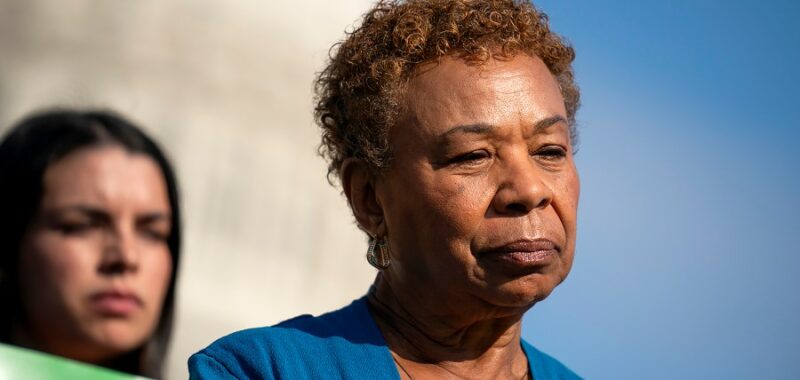
Former Rep. Barbara Lee (D-Calif.) was projected to win a special election to become the next mayor of Oakland, according to Decision Desk HQ, in what became a closer-than-expected race amid growing voter dissatisfaction over the direction of the city.
Lee won the nonpartisan ranked-choice election over a field of more than a half dozen candidates, with the most prominent being former City Council member Loren Taylor, who was the runner-up to now-former Mayor Sheng Thao (D) in the 2022 mayoral race and emerged as this election’s dark-horse contender.
Taylor had the initial lead after the first batch of votes were tallied Tuesday night with 48.2 percent of the vote, about 1,200 votes ahead of Lee, who had 45.7 percent.
But after more than 40,000 additional mail-in ballots yet to be counted were tallied and announced Friday, Lee went ahead of Taylor by about 5 points, or nearly 5,000 votes. That was just enough to win a majority in the initial round of vote counting before any additional rounds of tallying in the ranked choice system need to be conducted.
Oakland has been without a permanent mayor since November, when Thao was recalled from office in a first for the city with more than 60 percent of voters in favor of her ouster. She was elected narrowly in 2022 to become the first Hmong American woman to serve as mayor of a major American city, but tensions rose under her mayoralty as she faced scrutiny over her handling of crime and law enforcement and her personal conduct.
The crime rate spiked particularly high in Oakland during the COVID-19 pandemic and remained higher than most other cities in the years in which many Americans began to resume normal activities. Homicides remained high while robberies and burglaries experienced a sharp rise in 2023, the first year of Thao’s administration.
Crime appeared to be dropping in 2024 ahead of the election, but Thao also faced backlash over poor relations with the police union and missing a deadline to apply for a grant that would have given the city millions to address retail theft.
A personal controversy also surrounded Thao after the FBI conducted a raid on her home in June, not commenting at the time on its purpose. Months after leaving office, Thao was indicted in January on bribery, conspiracy and mail and wire fraud charges, accusing her of conspiring with others to give business from the city to two businessmen in exchange for financial benefits.
Thao has pleaded not guilty and denied any wrongdoing.
Lee’s victory was initially expected to be virtually ensured for the long-time former House member, who chose not to run for reelection last year for an unsuccessful bid for Senate, which she lost in the primary. She also had the endorsements of several notable local and state political figures, including interim Mayor Kevin Jenkins, former California Gov. Jerry Brown and former Mayors Libby Schaaf, Jean Quan and Elihu Harris.
Brown also previously served as Oakland mayor.
But the race became increasingly competitive as the election approached, with two polls commissioned by Taylor’s campaign and a group supporting his campaign showing a tight race last month. Taylor also touted endorsements from some less high-profile but still influential figures, including San Jose Mayor Matt Mahan and former City Council President Pat Kernighan.
The race became a bit of a proxy battle of sorts within the Democratic Party with Lee as the long-time progressive leader and the choice of many establishment leaders and Taylor running on a more moderate platform and positioning himself as an outsider who would bring change to the city.
Lee’s website states that her priorities as mayor will be a public safety plan to ensure residents feel safe, providing unhoused people with housing and mental health and addiction services and improving the city’s ethics regulations.

